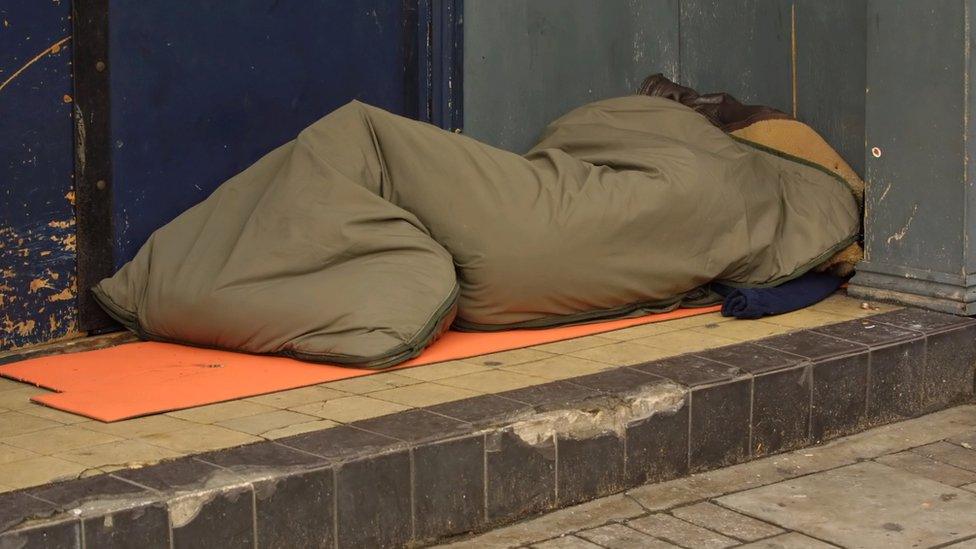Rough sleeping: Arrests fall as police brand law 'archaic'
- Published
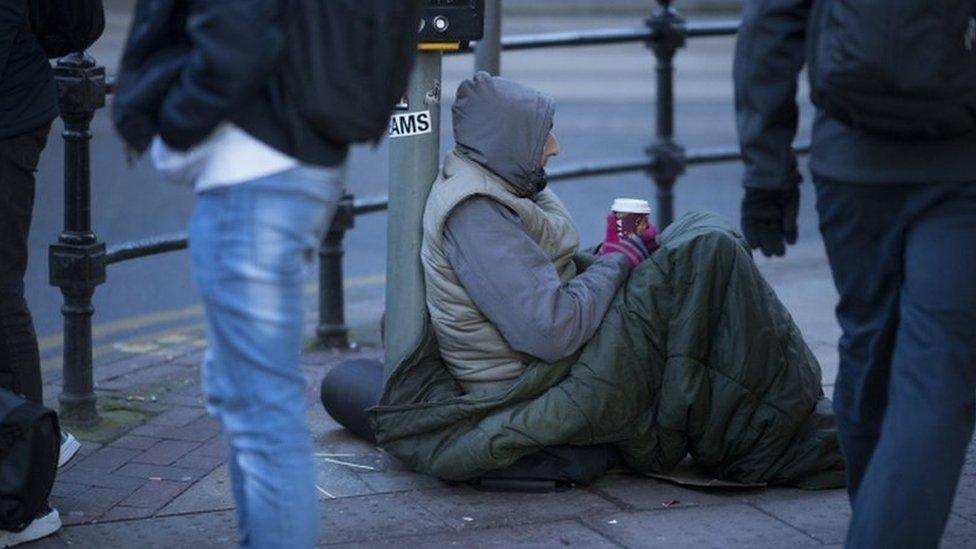
People can be arrested for begging and sleeping rough but police are using their powers less
Police have criticised a law allowing beggars and rough sleepers to be arrested, as figures reveal they are using their powers less.
Arrests under the Vagrancy Act have halved over two years, data obtained by the BBC suggests.
Forces have said they are "moving away" from the "archaic" law which charities say "criminalises" the homeless.
The government said the law was under review.
Figures from 33 police forces in England and Wales show a sharp fall in arrests between 2016 and 2018.
There were 1,127 arrests in 2017-18, down from 2,220 in 2015-16.
Almost 80% of the forces that provided data had reduced the number of arrests.
'Exacerbates problems'
West Midlands Police said it had "consciously" moved away from using the Vagrancy Act to pursue more "meaningful solutions".
Supt Ian Green said: "The Vagrancy Act is an archaic piece of legislation.
"It often ends with people being given fines they can't afford to pay or being sent to prison, which only exacerbates their problems."
West Midlands Police made 91 arrests under the Vagrancy Act in 2017-18 compared to 229 in 2015-16.
However, police in Birmingham could be given other powers to disperse individuals and groups and issue fines.
Councillors in Birmingham are due to discuss plans for a Public Space Protection Order on 4 June but the move has prompted protests from demonstrators who say it will treat "sleeping in a doorway and asking for a cup of tea" as a crime.
The city council said complaints over crime and anti-social behaviour had increased "significantly" over the past 12 months and the order would protect the homeless as well as the wider public.
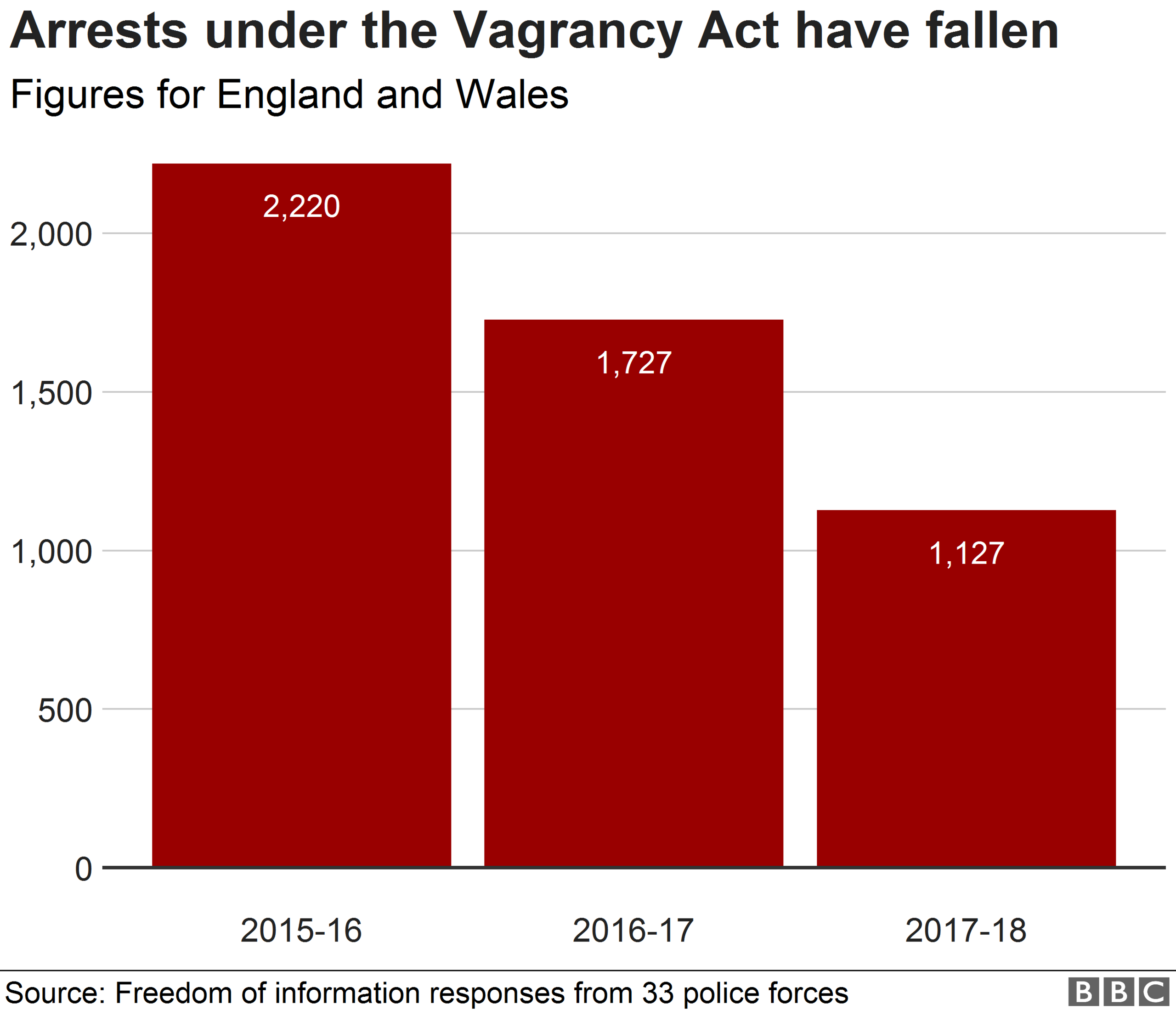
London's Metropolitan Police made 821 arrests in 2015-16, falling to 399 in 2017-18.
The force said it was seeking "alternative means" of dealing with beggars and rough sleepers.
Arrests by Merseyside Police fell by 72% from 248 to 68 in three years.
The force said "we cannot enforce our way out of a problem" and it is working more with charities and outreach workers.

You may also be interested in:

Addiction support
It said it helps people access services such as addiction support or housing agencies.
South Wales Police is one of only seven forces who responded saying it had increased its use of the act - making 76 arrests in 2017-18 compared to 63 in 2015-16.
Norfolk Police made comparatively few arrests but also increased its use of the act with 26 arrests in 2017-18 compared with just nine two years previously.
Forces say they make arrests as a last resort, mainly to tackle aggressive begging or anti-social behaviour.
Between 2015 and 2018, 33 forces in England and Wales made a total of 5,074 arrests.
The person was charged in 60% of cases. Two-thirds of the arrests were because of some form of begging.
In 2018 the government announced a £100 million plan to end rough sleeping by 2027.
About £30m is being spent in areas with high numbers of rough sleepers and councils have used the funding to create an additional 1,750 shelter beds and provide 500 rough sleeping support staff.
However, councils have said it does not make up for the loss of funding they used to receive until 2010, the point at which the number of rough sleepers started to climb.
Shelters
Can the UK learn from Finland's approach to tackling homelessness?
Local authorities have been using the funding to open new shelters where people get a bed for the night and receive help to find housing or treatment for addiction and mental health problems.
Brighton and Hove Council said the number of recorded rough sleepers on its streets had dropped by 64% between 2017 and 2018.
During the winter months it runs a night shelter at the Brighton Centre and a "severe weather shelter" when it "feels like zero degrees" outside.
In Liverpool, the city council opened a new rough sleeper shelter, external called Labre House.

What is the Vagrancy Act?
Under the law - which has been repealed in Scotland and Northern Ireland - police have the power to arrest people found in enclosed places or caught begging in public.
Conviction can result in a fine of up to £1,000 and a two-year criminal record.
Homelessness charities have called for the Government to repeal the law, believing it "criminalises" rough sleepers.
The legislation, external, which dates back to the time of George IV, stipulates "rogues and vagabonds" can be arrested and potentially prosecuted for the likes of lodging in a tent, a cart, a wagon or a stable, not giving a good account of themselves or "professing to tell fortunes" as well as indecent exposure.

Stories from the streets of Birmingham of disabled and homeless men struggling to find a permanent home
Homelessness charities including St Mungo's, Crisis and Centrepoint have all called for the Vagrancy Act to be repealed.
'Outdated and draconian'
Matt Downie, from Crisis, said: "We all know that the Vagrancy Act is outdated and draconian, and does nothing to help end homelessness."
St Mungo's added: "The people we work with who are sleeping rough deserve respect and dignity, not criminalisation.
"What they need to come off the streets is swift access to the right housing and support."
An open letter , externalin March, signed by 240 Labour figures - including MPs - said the law "specifically targets the most marginalised in our society".
Liberal Democrat MP Layla Moran, who has put forward a bill in Parliament to repeal the act, said the figures were "shameful" despite the fall.

Lib Dem MP Layla Moran wants the law repealed
"Time and time again I have called for the scrapping of this horrid law to no avail from the Government benches," she said.
Across England there was an estimated 4,677 people sleeping rough in autumn 2018.
There was a slight fall on the previous year, but overall rough sleeping has increased 165% since 2010.

A spokesman for the Ministry of Housing, Communities and Local Government said: "We have announced a wider review of rough sleeping and homelessness legislation, including the Vagrancy Act, and we will announce further steps in due course."
- Published23 May 2019
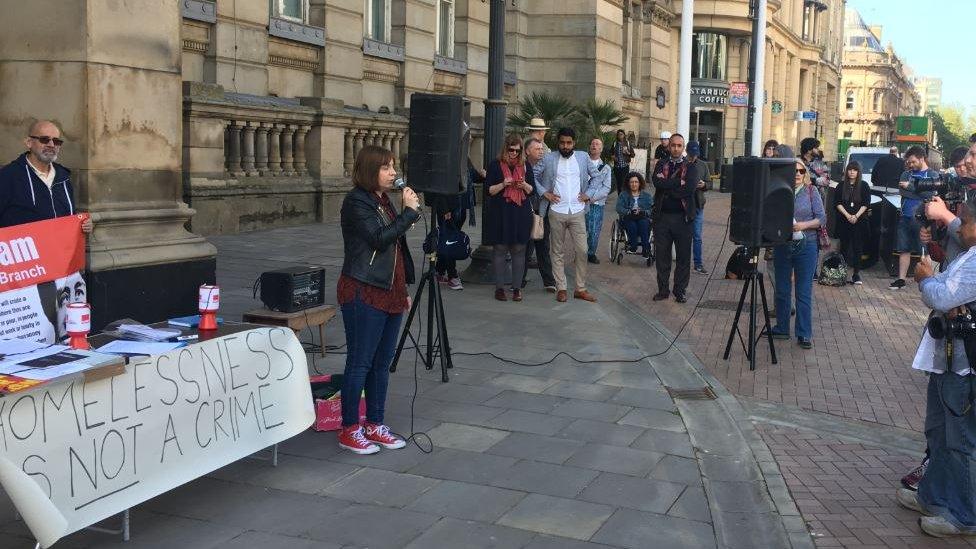
- Published29 May 2019
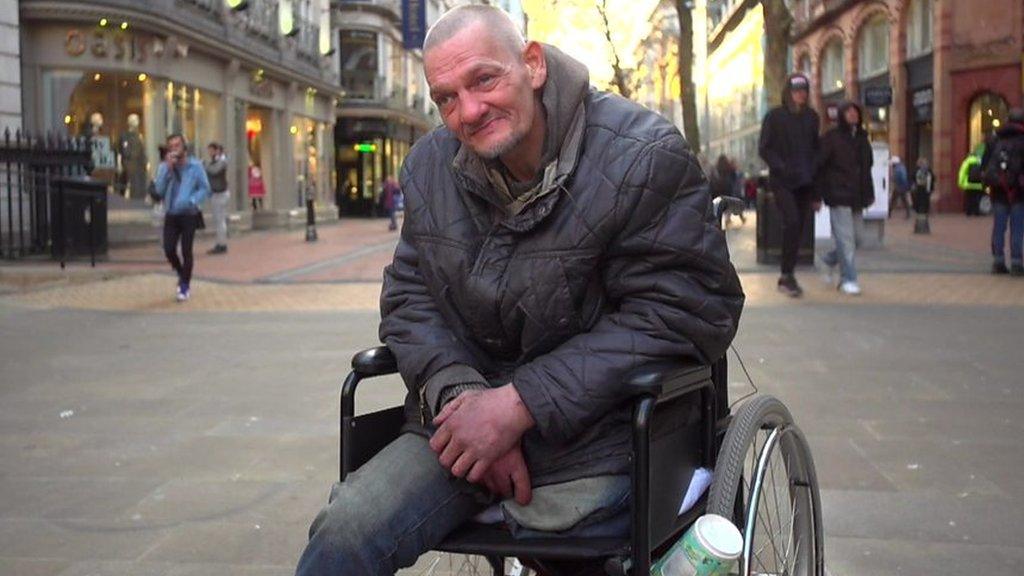
- Published31 January 2019
